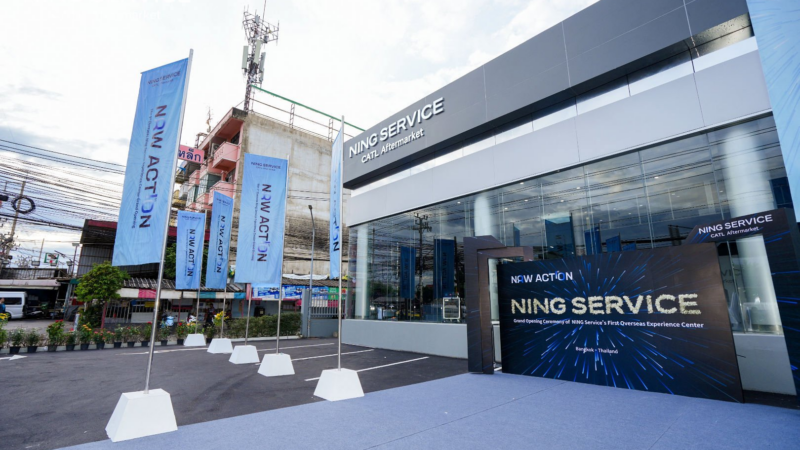August 10, on its first anniversary, CATL‘s independent aftermarket brand, Ning Service, launched a CTP battery repair service. This comes as new energy vehicle (NEV) penetration surpasses 50% and the first wave of NEVs exits warranty coverage, the issues of expensive and difficult after-sales service are becoming increasingly prominent.
In recent years, market demand for higher volumetric energy density in power batteries has led to a significant increase in the adoption of Cell-to-Pack (CTP) technology. However, CTP’s high integration makes repairs more challenging, trapping the industry in a “replace, don’t repair” dilemma for battery packs.
Research by the China Insurance Association on vehicle parts-to-whole ratios indicates that among 59 pure electric NEV models, the average parts-to-whole ratio for power battery packs is 50.96%. This means that for a 200,000 yuan (27,500 USD) NEV, the cost of replacing the power battery pack in after-sales service exceeds 100,000 yuan (13,750 USD).
Ning Service’s Shanghai direct-operated experience centre.
An engineer at Ning Service’s Shanghai direct-operated experience centre told a reporter of Chinese media Yicai that the repair service price is much lower than the cost of a full pack replacement. While a typical NEV battery replacement costs around 100,000 yuan (13,750 USD), repairs can reduce the cost to 10,000-20,000 yuan (1,375-2,750 USD). However, this service is currently limited to CATL batteries.
Ning Service originated from CATL’s after-sales service department, established in 2015, and was officially upgraded to an independent brand in 2024. It currently boasts over 1,100 service outlets in 75 countries, with more than 800 in China. Its services primarily include battery testing, battery maintenance, used car battery inspection and refurbishment, battery recycling, and cascade utilisation.
According to Yicai, CATL asserts that through Ning Service, the company can establish an ecological closed loop for batteries. In the future, CATL’s NEV aftermarket plans to extend beyond vehicle inspection and repair to include charging and battery swapping, as well as various business models like low-altitude economy, marine applications, and zero-carbon infrastructure.
Follow us for ev updates
